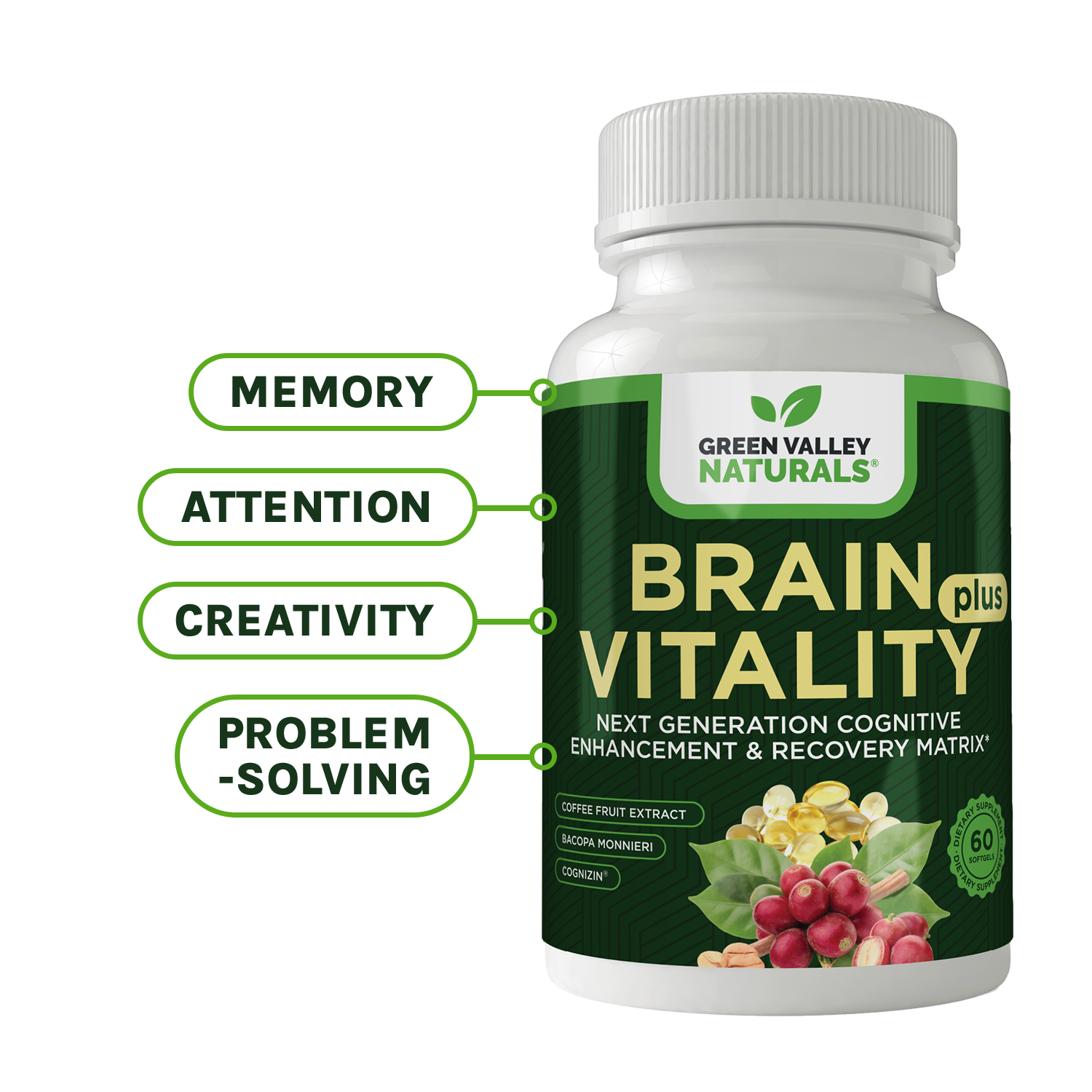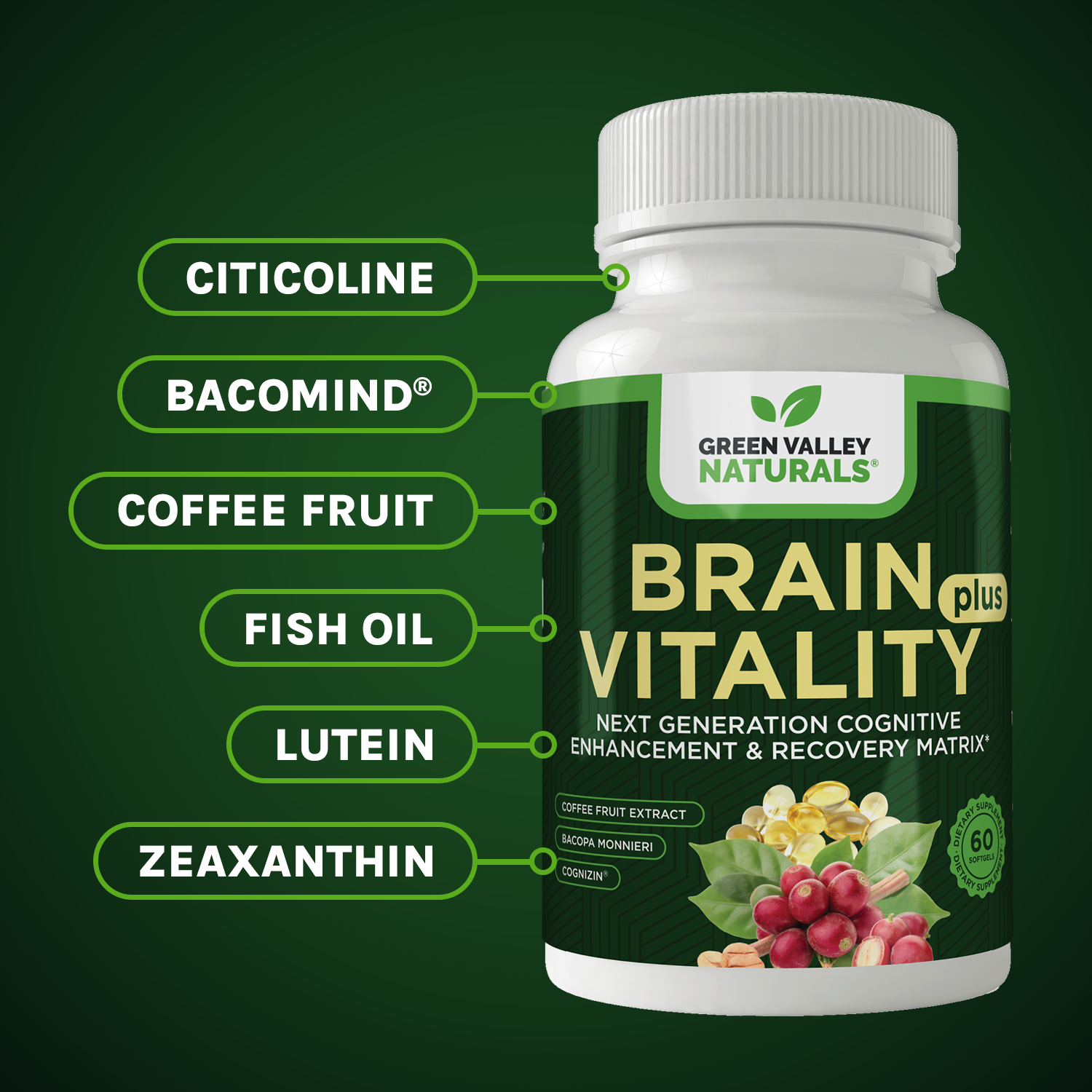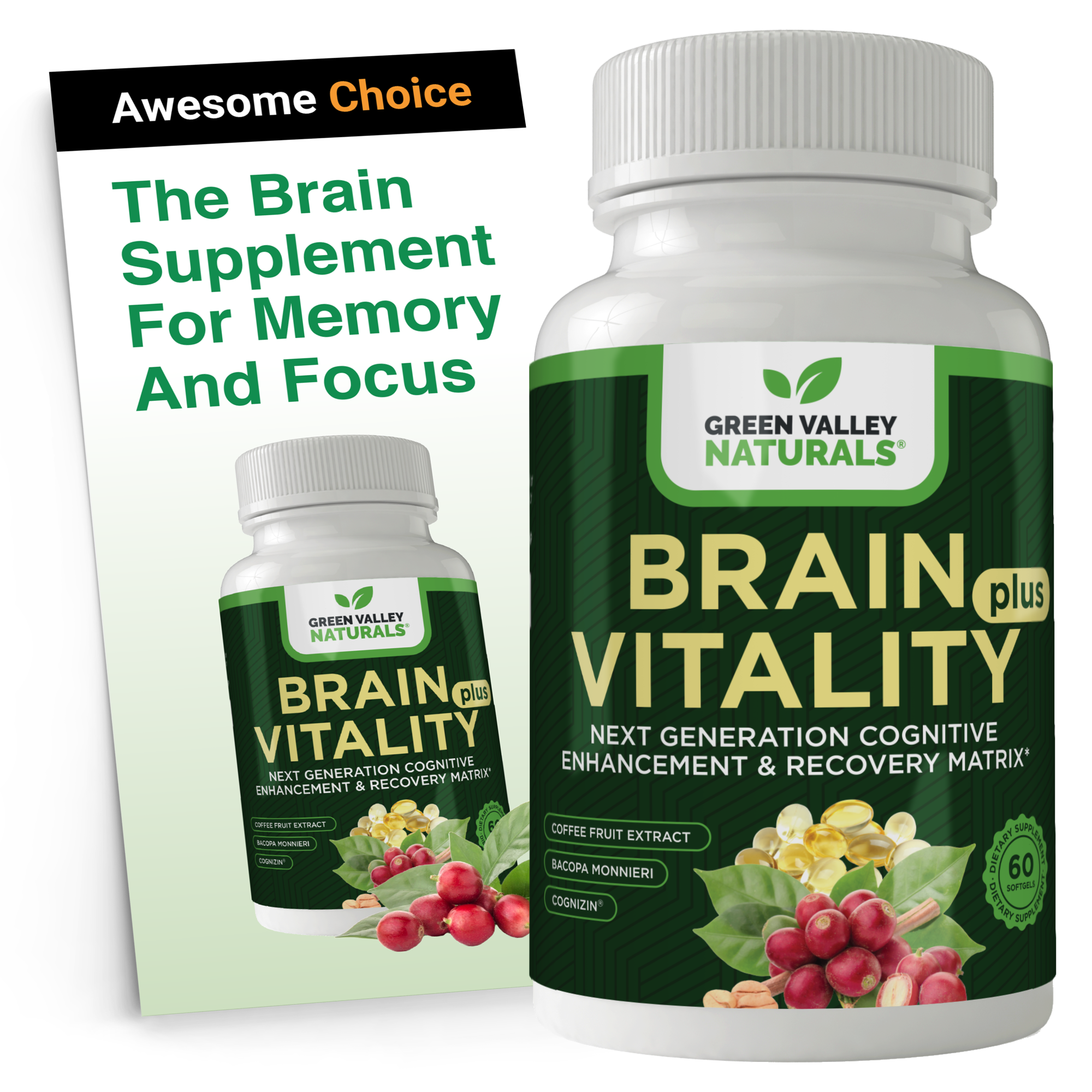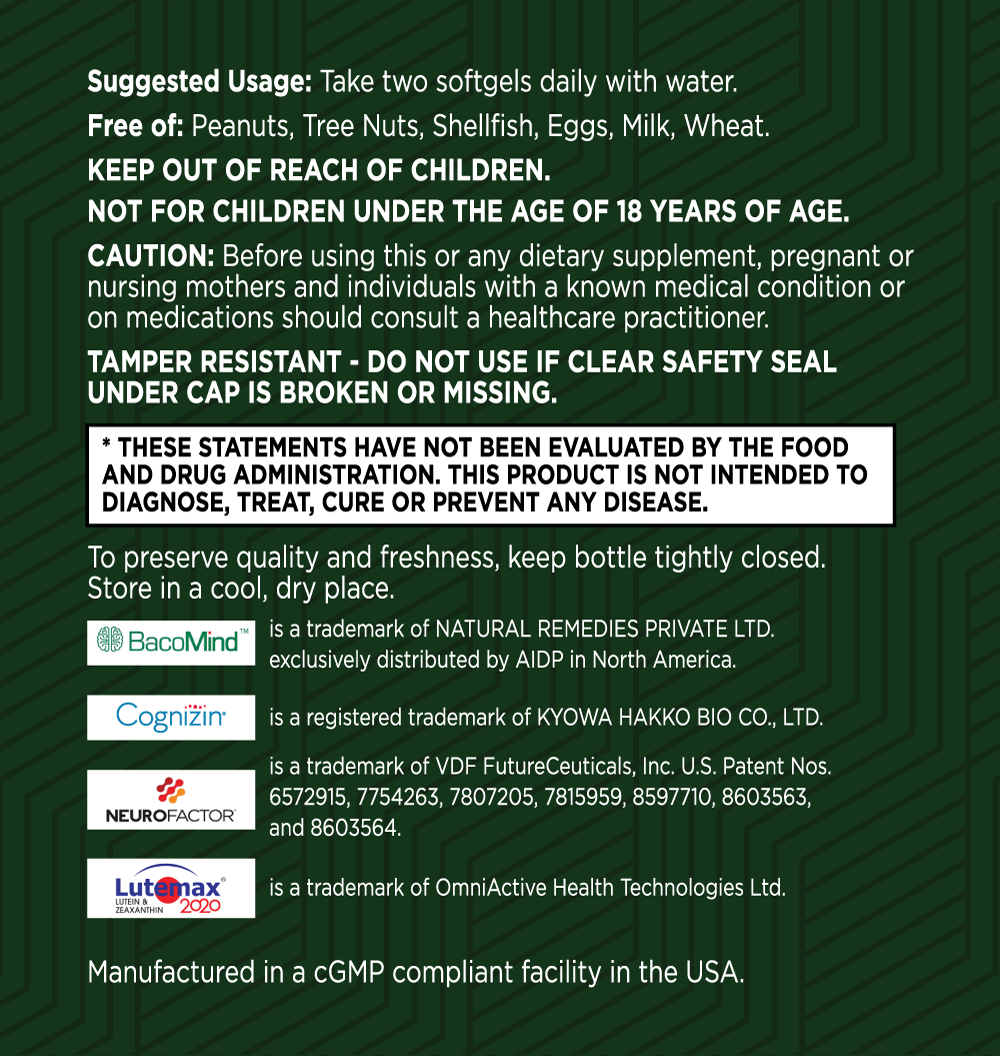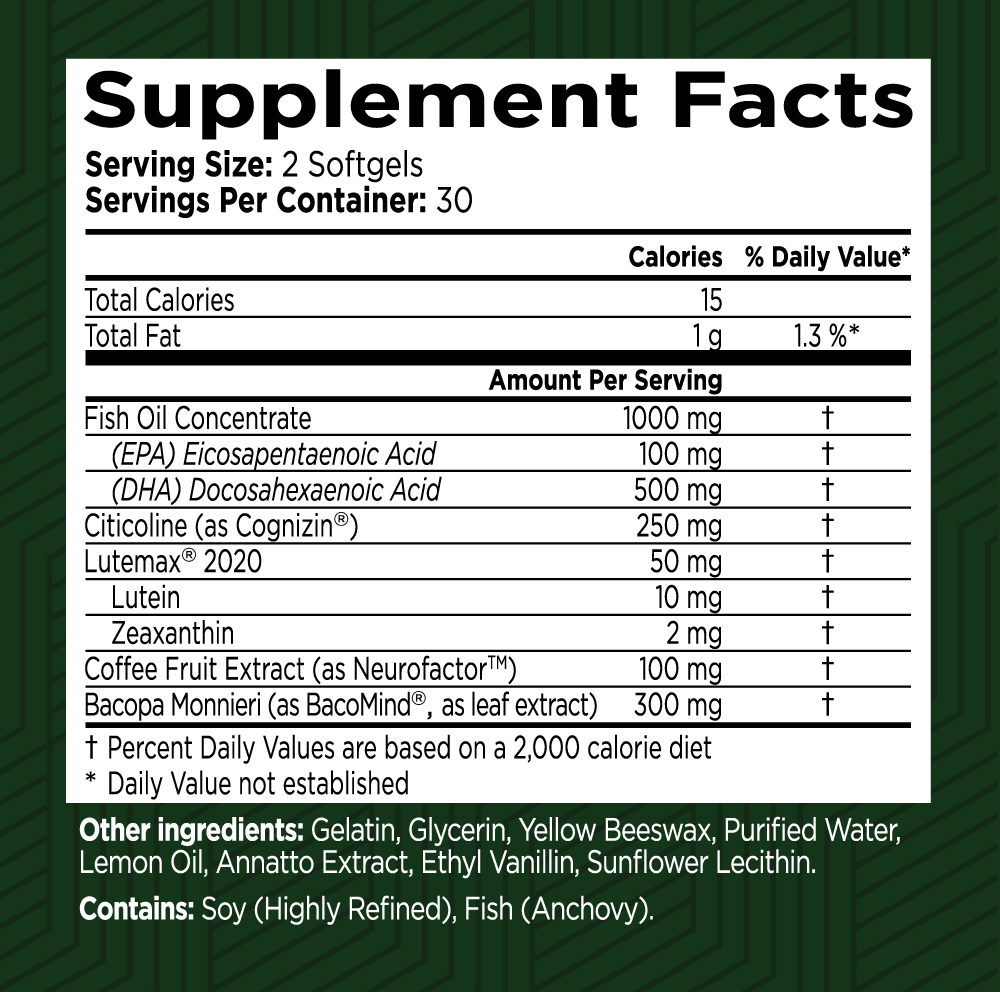Brain Vitality Plus
Next Generation Cognitive Enhancement & Brain Fog Recovery Matrix......
Medically reviewed by Dr. Margaret Aranda‑Ferrante
Key Ingredients
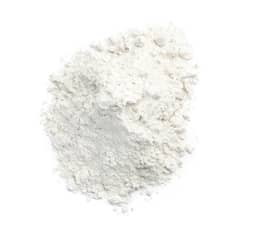
Citicoline (Cognizin*)
Citicoline is crucial for brain health as it helps in the formation of phospholipids essential for memory and cognition. It also enhances the production of acetylcholine, a vital neurotransmitter for brain function.

Bacopa Monnieri Leaf Extract (Bacomind®)
A traditional herb known for its cognitive-enhancing properties, Bacopa Monnieri is effective in improving memory, focus, and reducing anxiety. It works by increasing certain brain chemicals involved in thinking, learning, and memory.

Coffee Fruit Extract (Neurofactor™)
Extracted from the outer hull of the coffee berry, this ingredient contains compounds like procyanidins and polyphenols. It is known to significantly boost levels of brain-derived neurotropic factor (BDNF), which is crucial for brain health, including the growth of new brain cells.

Fish Oil
Fish Oil is a potent natural nutrient that offers numerous benefits for brain health. Derived from fatty fish, it is rich in omega-3 fatty acids, which are essential for maintaining cognitive function and overall brain health. Here’s a detailed description of its benefits and functions.

Eicosapentaenoic Acid (EPA) as EE
Eicosapentaenoic Acid (EPA as EE) is a powerful omega-3 fatty acid ester that offers numerous benefits for brain health. Extracted from fish oil, EPA is essential for maintaining cognitive function and overall brain health. Here’s a detailed description of its benefits and functions.

Docosahexaenoic Acid (DHA) as EE
Docosahexaenoic Acid (DHA) in its Ethyl Ester (EE) form, stabilized with a Lysine complex, is a premium omega-3 fatty acid ester extracted from fish oil that supports both brain and cardiovascular health. DHA (EE+Lysine) helps maintain healthy cholesterol and triglyceride levels, soothes inflammation in neural and vascular tissue, promotes optimal blood flow, enhances cognitive clarity, and protects both neuronal and endothelial function.

Lutein (from Lutemax® 2020 Marigold Flower Extract)
Lutein, derived from the Lutemax® 2020 Marigold Flower Extract, is a powerful carotenoid essential for maintaining optimal eye health. Known for its protective properties, Lutein is particularly vital for the macula and retina, playing a crucial role in preserving vision and enhancing visual performance. Here’s a detailed description of its benefits and functions.

Zeaxanthin (from Lutemax® 2020 Marigold Flower Extract)
These carotenoids are vital for eye health, particularly for the macula and retina. They protect against UV and blue light, enhance visual acuity, improve glare tolerance, and support overall eye health.
Frequently Asked Questions
Your health is our top priority
Here at Green Valley, we only work with US-based manufacturing facilities that are cGMP (Good Manufacturing Practices) compliant and FDA inspected.
Our products are triple tested by our manufacturers to ensure potency and purity and are stored in our temperature and humidity-controlled warehouse right here in the Shenandoah Valley, Virginia. And we ship directly to your doorstep – we don’t share warehouse space and we don’t hand off your business to a third party to fulfill your order.
Best of all, all Green Valley products come with our 90-day Satisfaction Guarantee. If you are unhappy with the product for any reason, simply call or email our customer support team and return the unused portion of the product within 90 days of your order. We’ll refund every penny of your purchase (less shipping), no questions asked!

Brain Vitality Plus Customer Reviews
Green Valley Naturals is an excellent company
Green Valley Naturals is an excellent company. I have been using their Brain vitality and vital force and my mind is clearer than it's been in ages. I'm no longer having to stop and figure out where I am and where I'm going. It's chased the cobwebs away. I'm more alert than I've been in a long time. I'm in the process of ordering more. I recommend anybody that has trouble with their memory to try these organic made pills and maybe you will have the same revaluation that I did. Thank you, Terry
Great Product
I received a delivery that was a mistake
I received a delivery that was a mistake. I contacted Green Valley Naturals by phone, spoke to a very nice lady about my problem and was told that when the package arrived just write return to sender on the unopened package and take the package to the post office which I did, no problem. I also received a credit refund immediately. I am a very satisfied customer of Green Valley Naturals.
